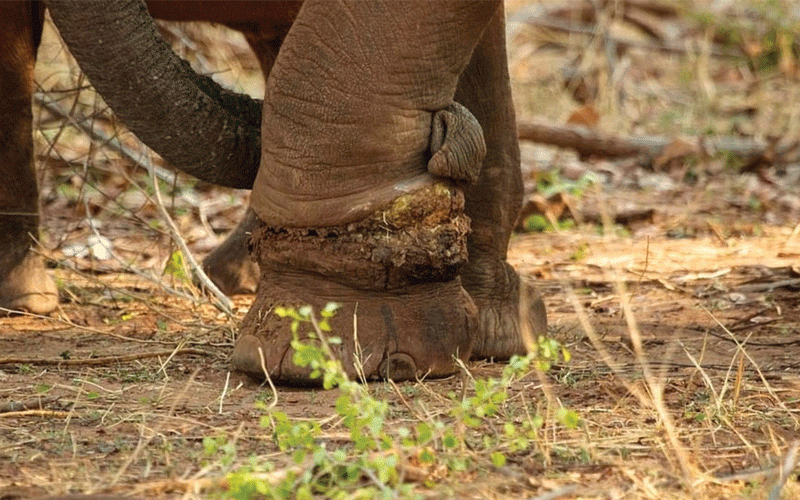
ZIMBABWE’S wildlife conservation efforts, celebrated across the world, have been hit by a new challenge with the emergence of an increasing use of snares against different animal species.
According to the International Fund for Animal Welfare (IFAW), wire snares remain one of the cruellest threats to Africa’s wildlife from “tiny birds to the mighty elephant”.
Recently, in Zimbabwe’s Sikumi Forest, just outside Hwange National Park, a badly snared elephant was discovered with a six-strand steel cable embedded in its leg.
The IFAW-supported DART Wildlife Rescue team acted swiftly darting the elephant, removed the snare, treated the wound and safely revived the animal.
Wire snares are among the most ruthless threats to Zimbabwe’s wildlife, indiscriminately harming animals from elephants to antelope and even birds.
These snares are often set illegally by poachers targeting smaller game for bush meat but harm many non-target species.
In just six months of this, DART patrols covered more than 700km, removing 412 snares.
Such efforts have led to a reduction of over 80% in snare detection within the 20-kilometre buffer zone bordering Hwange National Park in less than a year.
- LSU defends hefty fee hike
- Friends accused of killing Byo man
- 2 nabbed over $2,5m goods theft
- Byo residents condemn council directive on swimming pools
Keep Reading
Conservationist Kalulu Mumpande told Southern Eye that wire snares disrupt entire ecosystems and communities.
“The impact of wire snares stretches beyond individual suffering; it destabilises predator-prey relationships, reduces biodiversity and hinders natural behaviours,” he said.
Hwange National Park, home to around 45 000 elephants, faces dual pressures of climate-induced drought and snaring, while undermining conservation gains and local economies reliant on tourism.
Mumpande said there should be community involvement in protection of wildlife corridors.
“When communities see value in wildlife through sustainable tourism and benefit-sharing, they become frontline defenders against poaching and snaring,” he said.
Meanwhile, IFAW’s work in Zimbabwe includes removing snares, supporting wildlife rescue and engaging communities.
Its Room to Roam initiative aims to provide protected safe passages for African savannah elephants to fulfil their role as keystone species.
IFAW’s conservation efforts extend beyond Zimbabwe. IT's celebrating 25 years of visionary work in East Africa, including restoring Meru National Park in Kenya.









